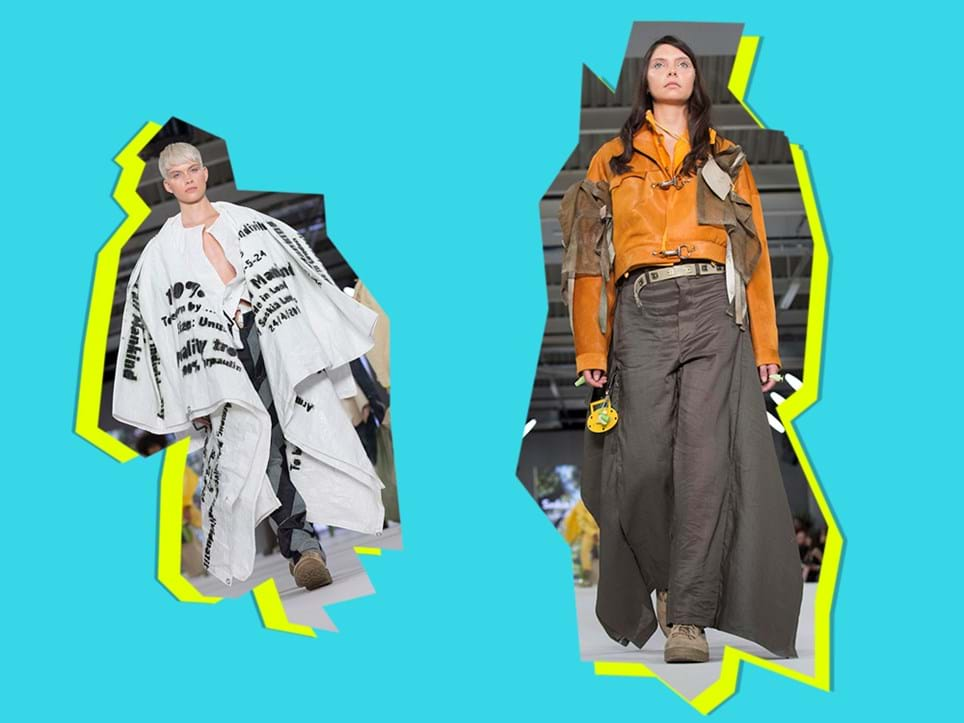Hot on the heels of the sustainable fashion movement Fashion Revolution, this year, Graduate Fashion Week – a four-day long event that draws tens of thousands of talented fashion students and industry insiders to Brick Lane’s Truman Brewery – brought a new ethical aspect to its timetable.
The Considered Design Showcase is a first for Graduate Fashion Week, heralding change in an all-too-often throwaway industry. In partnership with ethically-driven Scottish knitwear brand, Johnstons of Elgin, prizes across four categories were awarded to graduates who demonstrated their ethical and societal obligations as designers.
To find out more, we spoke to Saskia Lenaerts of Kingston University, who took the top prize (beating 34 entries) for the Considered Design Showcase, and Leslie Holden, one of the event’s key organisers.
Saskia Lenaerts, Winner of the Considered Design Showcase
“Sustainable fashion shouldn’t even be a question anymore. Why wouldn’t you try to design sustainably? Fashion has become such a consumerist world and I think we need to question that. Do I want to make four collections a year? I don’t think so… Nobody needs that!
Most of the materials in my collection were offcuts. All of the leather that I used was leftover, meaning I didn’t buy anything new; all of the cotton was from calico toiles that I made and recut and re-patterned; the jewellery was cast of thimbles and bobbin cases; and the accessories featured objects like measuring tapes, old fashion irons and rules that you use to create garments with.
I’m obsessed with how people express themselves and how they form their identity. I researched elements of colonisation and oppression, and what most intrigued me was how different people take different things from their past, their present, and their heritage in order to form their own identity. So, in that sense, it celebrates being different, but remains united as a collection.”
Leslie Holden, Head of Fashion & Design and Fashion & Management at the Amsterdam Fashion Institute
“All of the collections were quite different in respect to the way they were approached and the designers’ perspectives. Some looked at purchasing organic fabrics, others opted to choose pre- and post-consumer waste, up-cycling and recycling; it was very varied, but they all followed a rigorous history of looking at where the fabric began its life and how it ends it. Students needed to consider every last detail from the zipper to the buttons and finishes. It’s no good developing the fabrication and idea, and then using plastic buttons! I really commend them for their efforts.
For such a long time, there hasn’t been anything to fight against in fashion – but now, there is something we really need to fight for. The future of our planet.
Fashion should be looked at as a force for good; it shouldn’t be ruining people's lives or polluting the planet. We need to question how we can make the world a better place with fashion and how we go about educating people to be ambassadors for good in the world.”
Considered Design Showcase closes Graduate Fashion Week







